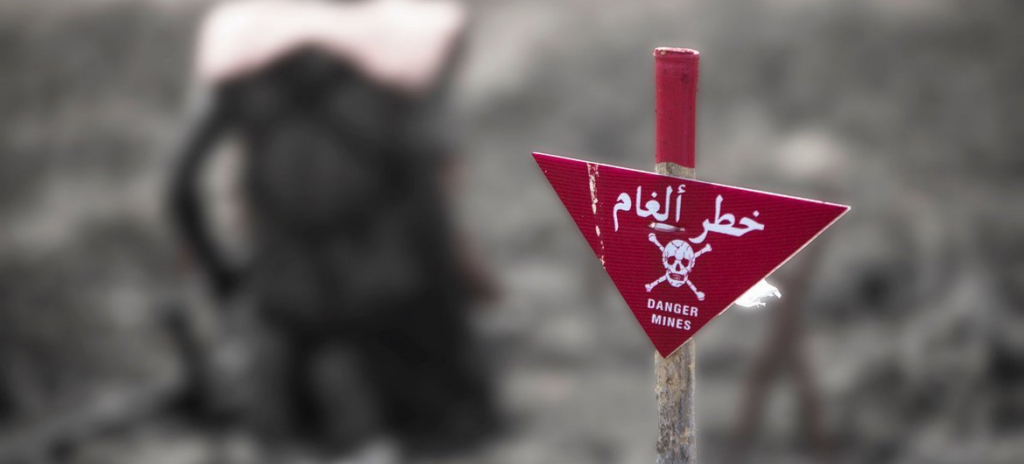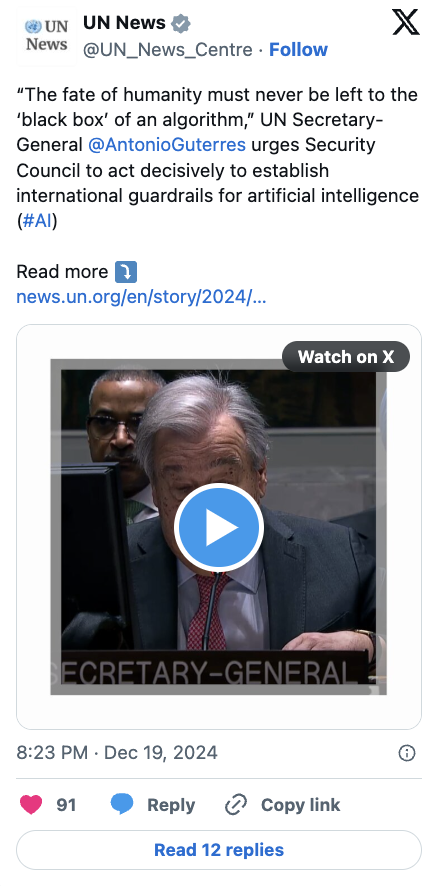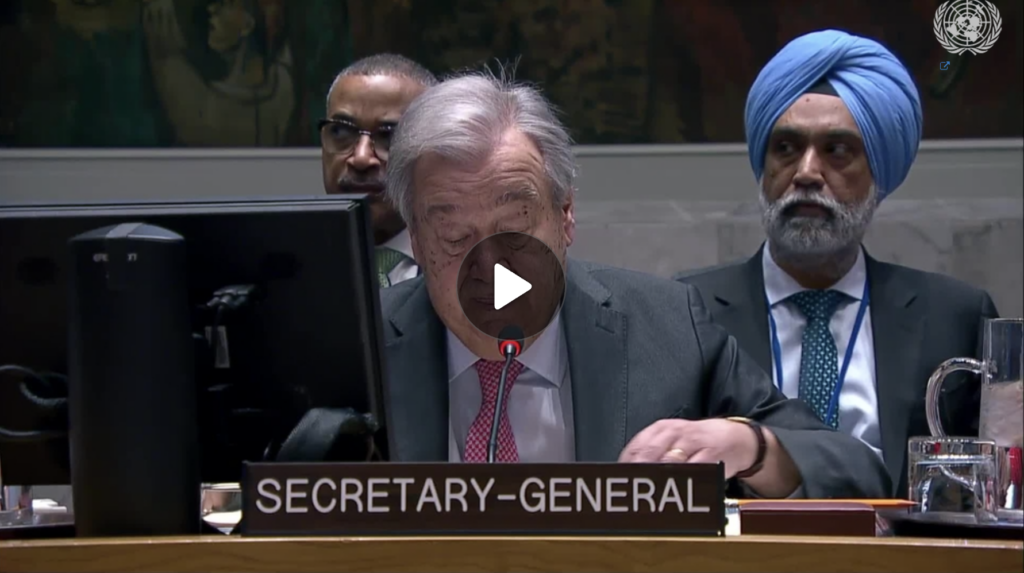
Humanity’s fate can’t be left to algorithms, UN chief tells Security Council
United Nations | December 19, 2024
The UN Secretary-General on Thursday urged the Security Council to act decisively to establish international guardrails for artificial intelligence (AI), warning that delays could heighten risks to global peace and security.
Addressing ministers and ambassadors, António Guterres warned that rapid developments in AI are outpacing humanity’s ability to govern it, raising important questions about accountability, equality, safety and human oversight in decision-making.
“Every moment of delay in establishing international guardrails increases the risk for us all,” Mr. Guterres said. “No country should design, develop, deploy or use military applications of AI in armed conflict that violate international humanitarian and human rights laws.
That includes relying on AI to select or engage targets autonomously.”
He also underscored that geopolitical competition over emerging technologies must not destabilize international peace and security.
A double-edged sword
In his address, Mr. Guterres highlighted the dual-edged nature of AI, noting its potential to predict displacements caused by climate change or detect landmines. However, its integration into military systems and its misuse in digital security poses great risks.
“Recent conflicts have become testing grounds for AI military applications,” he said, citing AI use in autonomous surveillance, predictive policing and even reported life-and-death decisions.
Particularly alarming, he underscored, is the potential integration of AI with nuclear weapons and the advent of quantum-AI systems that could destabilize global security.
“The fate of humanity must never be left to the ‘black box’ of an algorithm,” he stated, stressing the importance of human control over decisions involving the use of force.

Erosion of trust
The role of AI in the information domain is another area of concern, Mr. Guterres said, pointing to how deepfakes and AI-generated disinformation can manipulate public opinion, trigger crises and erode trust in societies.
He also drew attention to the environmental risks of AI, highlighting the resource-intensive nature of data centres and geopolitical competition over critical minerals needed for AI technology.
“Unprecedented global challenges call for unprecedented global cooperation,” he said, calling for collaborative efforts to ensure AI benefit everyone and does not exacerbate inequality.
Call for a global framework
Mr. Guterres outlined recent steps toward establishing global governance for AI, including the adoption of the UN Global Digital Compact at the Summit of the Future, and two key resolutions at the General Assembly on enhancing global cooperation and capacity-building.
A third resolution – focusing on AI in the military domain – is due to be considered by the General Assembly in the coming days.
Concluding his address, Mr. Guterres reiterated his call for banning lethal autonomous weapons, he said, urging the Security Council to lead by example in preventing the militarisation of AI in ways that destabilize international peace and security.
“I urge you all to join forces to build a safe, secure and inclusive AI future.

The original article appeared here.